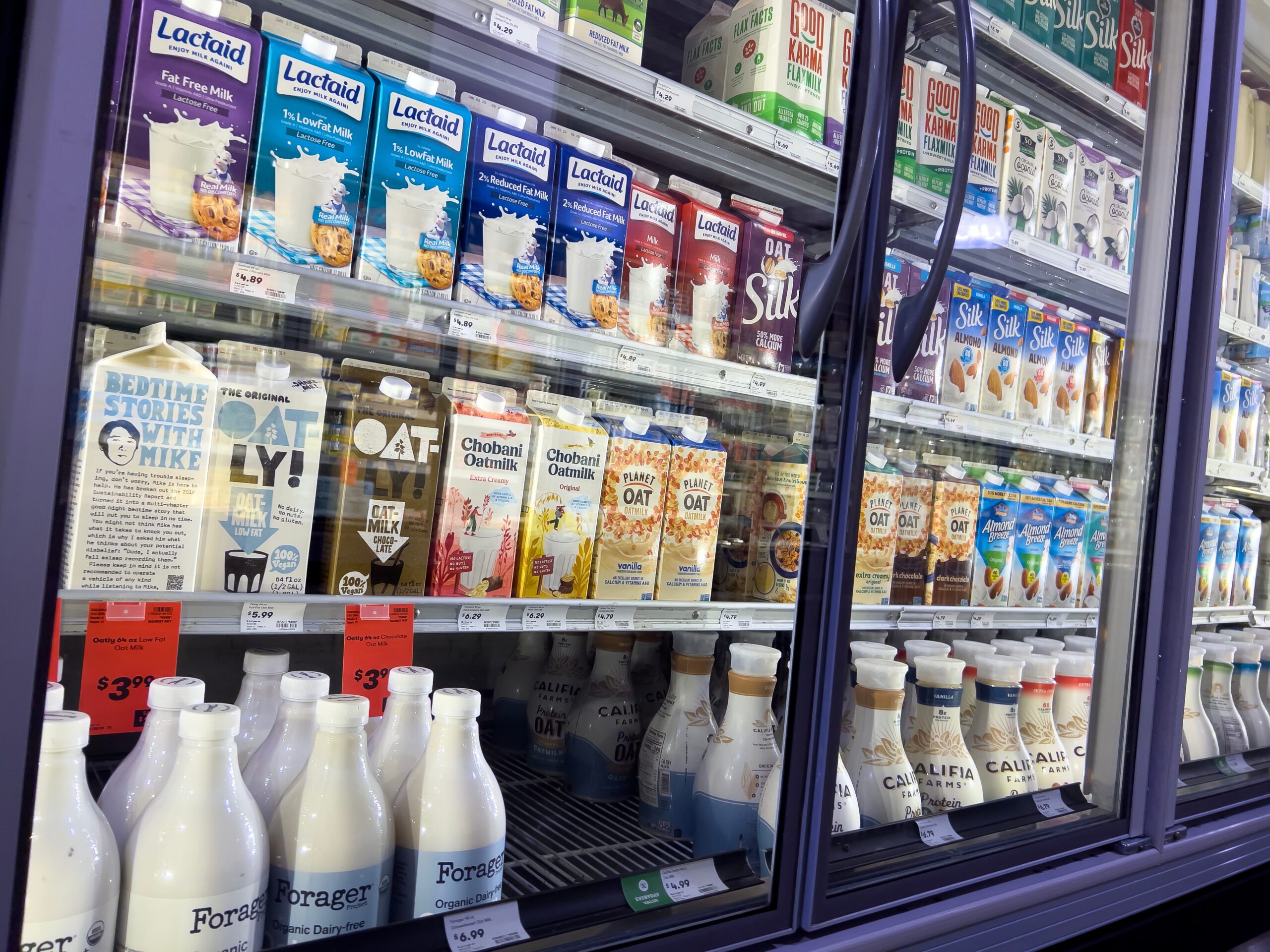Seed Milks Exposed: Unhealthy Ingredients You Should Avoid
July 25, 2024
 1423
1423 
In recent years, seed milks have gained popularity as a nutritious and eco-friendly alternative to dairy and other plant-based milks. Marketed as a healthy option, these beverages are often touted for their rich nutrient profiles and sustainability.
However, a closer look reveals that not all seed milks are created equal. Many contain hidden ingredients and additives that can pose serious health risks.
In this blog, we’ll uncover the truth about unhealthy seed milks, examining the potential dangers they harbor and offering tips on what to look out for to make informed choices for your well-being.
Based on the search results, there are several health concerns associated with seed milks. Here are the most significant worries:
It’s important to note that not all seed milks will have all of these issues, and the severity of these concerns can vary depending on the specific product and individual health factors. When choosing a seed milk, it’s advisable to read labels carefully, opt for products with minimal additives, and consider rotating between different types of plant-based milks to ensure a varied nutrient intake
Here are some of the most popular seed milks and potentially problematic ingredients they may contain:
The ratio of omega-3 to omega-6 fatty acids in plant milks can significantly impact their health effects, particularly concerning inflammation and overall health balance. Here’s a detailed look at how these ratios affect plant milk consumption:
Omega-3 and omega-6 fatty acids are essential polyunsaturated fats that play crucial roles in the body. However, they have different effects:
Historically, humans consumed omega-3 and omega-6 in a ratio close to 1:1. Modern diets, however, often have ratios as high as 16:1 or more, favoring omega-6. This imbalance is linked to various inflammatory diseases, including heart disease, diabetes, and arthritis.
Different plant-based milks have varying ratios of omega-6 to omega-3, which can influence their health impact:
| Product | Ratio omega-6 to omega-3 |
|---|---|
| Almond drink | 127 to 235:1 |
| Cashew drink | 78:1 |
| Coconut drink | 11 to 18:1 |
| Cow’s milk | 2 to 3:1 |
| Hemp drink | 30:1 |
| Oat drink | 84 to 105:1 |
| Rice drink | 92 to 175:1 |
| Soy drink | 7 to 8:1 |
| Spelt drink | 112:1 |
Most plant-based milks, especially those made from nuts and seeds, have high omega-6 to omega-3 ratios. This can contribute to an already imbalanced diet high in omega-6, potentially exacerbating inflammation.
To mitigate the adverse effects of high omega-6 intake from plant milks, consumers can:
The omega-3 to omega-6 ratio in plant milks is a critical factor in their health impact. High omega-6 levels, common in many plant milks, can contribute to inflammation and related health issues. Consumers should be mindful of these ratios and make dietary adjustments to maintain a healthier balance of these essential fatty acids.Most seed milks have their benefits and drawbacks. Key concerns include the presence of carrageenan, added sugars, synthetic vitamins, and inflammatory oils. Consumers should opt for unsweetened, minimally processed varieties and check labels for these problematic ingredients. For those with specific dietary needs or sensitivities, making homemade versions can provide better control over the ingredients used.
It’s important to note that while these ingredients may be problematic for some individuals, their effects can vary from person to person. Always consult with a healthcare professional if you have concerns about specific ingredients or their potential health impacts.
References
https://www.presscription.co.uk/a/whatspressing/the-problem-with-plant-milks
https://www.webmd.com/diet/health-benefits-hemp-milk
https://www.healthline.com/health/nut-milks-mylks-health-guide
https://www.food-safety.com/articles/8148-examining-the-safety-of-alternative-milks
https://www.webmd.com/diet/health-benefits-almond-milk
https://www.healthline.com/nutrition/almond-milk
https://www.livestrong.com/article/13731884-how-to-buy-oat-milk-ingredients/
https://www.huffpost.com/entry/non-dairy-milk-ingredients-safe_l_626ff664e4b04a9ff89e56f5

A new study suggests that a widely used sugar substitute found in diet sodas, chewing gum, and low-sugar yogurt may elevate insulin levels. This could increase the long-term risk of heart disease. “Artificial sweeteners have infiltrated nearly all types of food, making it crucial to understand their long-term health effects,” said Yihai Cao, senior author […]

Diet Coke has long been a fan-favorite among soda lovers who want a fizzy, guilt-free alternative to traditional soft drinks. While its zero-calorie, zero-sugar label makes it seem like a healthier option, the reality is far more concerning. Despite its undeniable popularity, Diet Coke’s nutritional profile has raised red flags among health experts for years. […]

New study shows that embracing an anti-inflammatory, plant-forward diet can support cognitive function and help reduce the risk of dementia. What You Eat Shapes Your Brain The food you eat doesn’t just impact your body—it also affects your brain. Research suggests that eating an anti-inflammatory, plant-based diet can help improve memory, focus, and overall brain […]